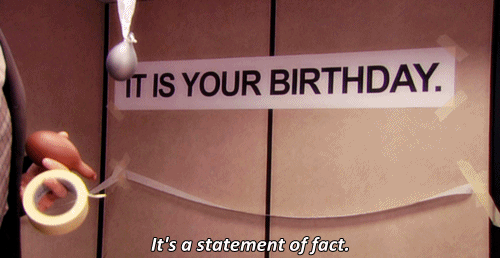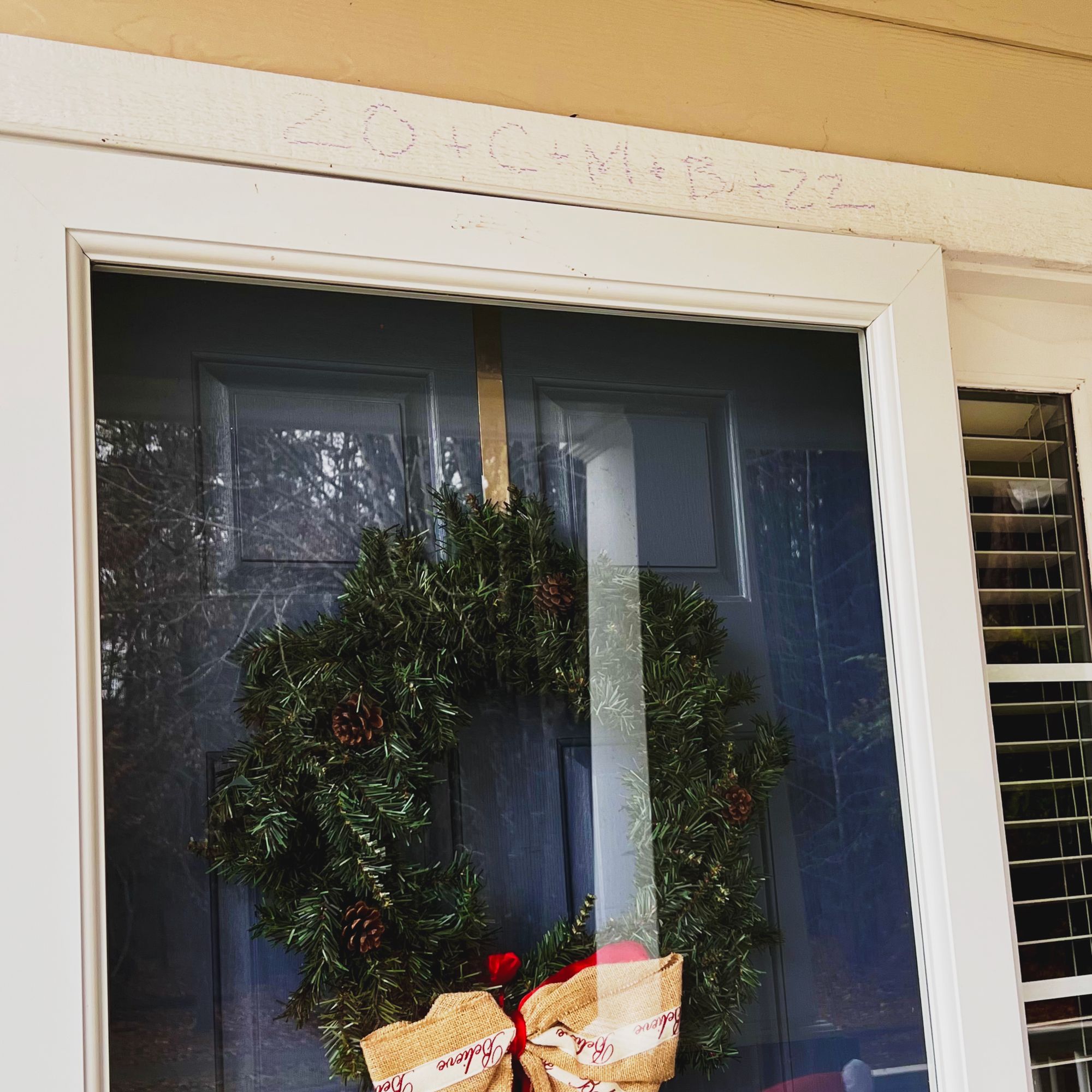Home By Another Way

Sermon Delivered at The Local Church
January 2, 2022 • Epiphany
Scripture: Matthew 2:1–12
Here we are, y’all. 2022. Does it feel any different? Who made it to midnight? I didn’t even try this year. I feel like I dropped enough balls last year. I didn’t need to start my year that way, too. I watched a little bit of the festivities in New York. It was strange to see everyone wearing masks, though I’m glad they were. I mean, I don’t know about you, but it felt like that birthday banner in The Office. Instead of “It is your birthday,” it’d be, “It is a new year.”

Remember a year ago? Remember when there was so much hope about finally getting through the dumpster fire of 2020? Remember the unbridled optimism? Remember how much hope we pinned on turning the calendar from December 31 to January 1? There was this collective sense of: “There’s absolutely no way it could be worse than this year.”
But then, not even a week later came January 6. And then there was Delta. And then the politicized and polarized arguments about mask-wearing and vaccines that left many of us just exhausted. And then the horrors in Afghanistan over the summer that left thousands fleeing their homes. Supply chain issues. Now Omicron. And that’s all on top of everything else you’ve been carrying day in and day out.
And as if all that wasn’t enough, 2021 had to go and take Betty White, too. I mean, come on—insult to injury. We need a moment of silence to thank her for being a friend.
Now look, I’m a lifelong Cubs fan. I’ve got “There’s always next year” in my bones. I’ve rehearsed that line so many times over the years that sometimes it just comes out. And it just sort of feels like many of us are all there again with this sense of, “Well, it couldn’t be any worse than 2021, could it?” Talk about a low bar.
As I scrolled through Twitter on New Year’s Eve, that was the sentiment I saw again and again. “Couldn’t be worse.” “Good riddance.” Some with more colorful language. And that got me thinking back to last year. And the year before that. And the year before that. And maybe it’s just the people I follow, but it strikes me that that seems to be the prevailing sentiment year after year: Good riddance. There’s always next year. I feel it, too.
But I wonder if today’s story might offer us a different perspective. A fresh take. An epiphany, perhaps, as we begin a new year together.
Today is, after all, Epiphany Sunday. I don’t know about you, but I’m always so bummed when I get in my car on December 26, and SiriusXM has already taken away the holiday stations. I’m like, “The party was just getting started!”
That’s because, in the church, Christmas is more than a day; it’s a whole season. We get twelve days of Christmas — just like the song — and it’s a season we call Christmastide. Christmastide is an invitation to stay with it — the miracle, the joy, the wonder, the hope of Christmas. To resist the urge to move on so quickly to the next thing. We spend these twelve days reveling in the good news of great joy that God is with us, and we hold this gift in our hearts for a little while. We savor it.
The Christmas season, Christmastide, ends on January 6, the twelfth day of Christmas, which is Epiphany. That’s this Thursday, but we’re marking it today. And Epiphany, for us, is more than an a-ha moment or another word for a good idea. The word, Epiphany, comes from the Greek meaning “manifest” or “revelation” or “new understanding.” And that’s what Epiphany is all about: About how in this incarnation event, Jesus is revealed as God with us — a God who doesn’t keep us at a distance but comes near and makes a home of this place, this world, these people. It’s about how the birth of Jesus gives us a new understanding of who God is. And it’s about how God’s love is made manifest not in a palace, not among the powerful and the rich and the conniving, but the poor, the marginalized, and the seemingly forgotten. That’s Epiphany. That’s the revelation.
On this Epiphany Sunday, we’re also wrapping up our Close to Home series — a pilgrimage that has led us here from Advent to Christmas and now Epiphany, a series that, each week, has centered on ideas of home and recognizing that though we may feel, at times, far from home, God comes close and makes a home among us.
This week, for Epiphany, we hear again the story of the bitterness, scheming, and spite of King Herod, whose power, he knows, is threatened by that of this newborn king — just not in the way he imagines.
It’s interesting, if not ironic, isn’t it, that Herod finds out about Jesus not from the Jewish priests and scribes but from wise men, or in Greek, magi. It’s these foreign Gentile Zoroastrian priest-scientists who first share this news with Herod, for they’ve come seeking this child to honor him, to pay him homage — led by a star in the night sky. It shouldn’t be lost on us that among the first to hear this good news of great joy are not the religious insiders, but instead are Gentiles, outsiders, pagan priests. That should tell us something about who God is and just how big and expansive God’s embrace is.
When Herod learns of all that has happened, he instructs the wise men to go and search for the child, and when they’ve found him, the wise men are to come on back and let ol’ King Herod know where he is so that he can go and also pay him homage.
So the wise men continued on their way until the star in the sky stopped over the house with Mary, Joseph, and the Baby Jesus. And the story goes that they were overwhelmed with joy. They come with gifts of gold, frankincense, and myrrh and offer them to the holy family.
But then, having been warned in a dream not to return to Herod, they left for their own country by another road. They found another way home.
This is the story of Epiphany. But the story doesn’t end here.
Because even though the magi outsmarted Herod by going home a different way, Herod was still raging. His plan was thwarted, which likely made him more angry. In the very next verse, an angel appears to Joseph in another dream and tells him to take Mary and Jesus and flee to Egypt because, the angel says, Herod is about to order a search for the child to kill him. And that’s exactly what Herod does.
In one of the most horrific stories in the Bible, Herod orders every child two and younger in Bethlehem to be killed. But Joseph, Mary, and Jesus had already made the 75-mile trek to Egypt — refugees fleeing for safety.
Which raises a question I hadn’t thought about until this week: What did they do there? Scholars believe that they were there in Egypt anywhere from a few months to a few years, and this all makes me wonder: What happened next? In other words, how did Joseph make a living? How did they buy food? How did he support his family? When Joseph flees, he leaves behind his work, extended family, and support. Everything.
Have you ever wondered why these magi bring the gifts that they do — of gold, frankincense, and myrrh? Perhaps you’ve heard that gold is an expensive gift for royalty, symbolizing that Jesus is part of the royal line. Or that frankincense was burned as part of worship in the temple, signifying Jesus’ divinity. Or that myrrh was an expensive oil used in perfume, meant to foreshadow the anointing that would happen at his death.
While that all sounds good, scholars aren’t sure that it has a lot of historical merit. But there’s another possible explanation, and that is that while yes, these gifts indeed honored this newborn king, they also would have come in very handy while the holy family was living as refugees in Egypt. That’s because gold, frankincense, and myrrh were all costly and worth a lot, and so it stands to reason that these expensive, extravagant gifts could have been bartered or sold by Joseph and Mary, providing them a way to buy food and find safe shelter and make ends meet while they were so far from home. These gifts saved their lives.
In other words, the gifts of the magi — though they might have seemed frivolous and perhaps not the most practical at the time, they were gifts from God. They just couldn’t see it yet. With these gifts, God was preparing the way for them — offering them provision before they even knew they needed it. It was God saying, “I got you. I’m with you.”
We have a term for this in our tradition: We call it prevenient grace, which is the grace and power of God at work in our lives before we’re even aware of it. That’s what these gifts were — gifts of God’s prevenient grace.
As we step into a new year, reflecting on whether 2021 was more or less of a dumpster fire than the year before, I wonder what it might mean for us on this Epiphany Sunday to take the long view. What would it mean to at least raise the possibility that all of the hard things from the last year might actually be a gift from God that we just don’t have the vision or the experience to see quite yet?
It was a hard and heavy year. I’m not trying to “bright side” anything or downplay any pain. It’s real, and permission is granted to feel all the things. To be grumpy when you need to and to be angry with God when that’s all you can do. God can take it. Give space for that grief if you’ve lost something or someone you loved this year.
I’m also not suggesting that there is some great purpose to our pain. That God causes suffering to somehow teach us things. That idea doesn’t jive with the God I know. But I am saying that God’s with us in it all — that God is in the business of bringing beauty from pain and resurrection from death. That’s who God is and what God does.
I’m also inviting, I hope, a reframing that names the truth that God’s got us. That perhaps in ways we can’t see, the year that has been will be a gift from God to our future selves. That the flames of the dumpster fire might be purifying and refining.
It might be something we’re learning about ourselves.
Or a new friendship that’s kindled when you’re going through something with somebody else.
Maybe it’s a superpower you didn’t know you had.
Or a renewed faith in humanity.
A piece of wisdom you’ll carry and then pass down from generation to generation.
Or a surprising sense of safety and belonging.
I don’t know what it is for you, but perhaps this is the epiphany we need today as 2022 begins. I wonder what it would look like to hold this posture as we enter a new year, trusting that in every time and every season, God’s gifts are all around us.
A posture of embrace. Of welcome. Trusting that God’s grace has already gone ahead of you.
On your chairs, you have a piece of chalk. There’s an ancient Epiphany practice you may have seen called “chalking the door.” It’s essentially a house blessing, and what people do is take the chalk and write what looks like a mathematical formula above their doors.
This year, it would look like this: 20+C+M+B+22.
The letters C, M, and B represent the traditional names of the three magi (Caspar, Melchior, and Balthazar), though some believe the letters also stand for "Christus Mansionem Benedicat" which is Latin for, "May Christ bless this dwelling." And the plus signs represent the cross.
I also read that the chalk, used by teachers as a tool of instruction, is a reminder of how ordinary earthly elements can be made holy. And the fact that chalk isn’t permanent reminds us of the need to recommit ourselves and our homes to this blessing each year. As the chalk fades, the blessing is transferred to our hearts and homes.
When you leave this space today, I want to invite you to chalk your door. You can find instructions for the blessing on our digital bulletin, and if the doorframe is too high, next to your door is fine, too. Wherever you’ll see it.
It’s not just a blessing for you, but it’s a blessing for anyone who’ll stop by your home — the Amazon delivery drivers and the mail carriers, and the sanitation workers. And it’s also a blessing for any unwelcome guests that find their way to your door this year, metaphorically speaking or otherwise — the inconvenient and impractical or the hard and the heavy — and everything in between. May it be a gift. God is with you, friends.

I want to end this morning with one of my favorite poems — one that became a gift to me, written by another wise Persian religious scholar, when I discovered it five years ago about right now, actually. It was in the days following a massive plumbing malfunction in our home that displaced our family for about three months. I needed this poem then as much as I need it now, and I pray it’s just as much a gift to you.
It’s called “The Guest House” by the 13th-century Persian poet Rumi.
This being human is a guest house.
Every morning a new arrival.
A joy, a depression, a meanness,
some momentary awareness comes
as an unexpected visitor.
Welcome and entertain them all!
Even if they’re a crowd of sorrows,
who violently sweep your house
empty of its furniture,
still, treat each guest honorably.
He may be clearing you out
for some new delight.
The dark thought, the shame, the malice,
meet them at the door laughing,
and invite them in.
Be grateful for whoever comes,
because each has been sent
as a guide from beyond.
Perhaps in so doing, we, too, will find ourselves home by another road. In the name of God — Foundation, Spirit, Son — Amen.
